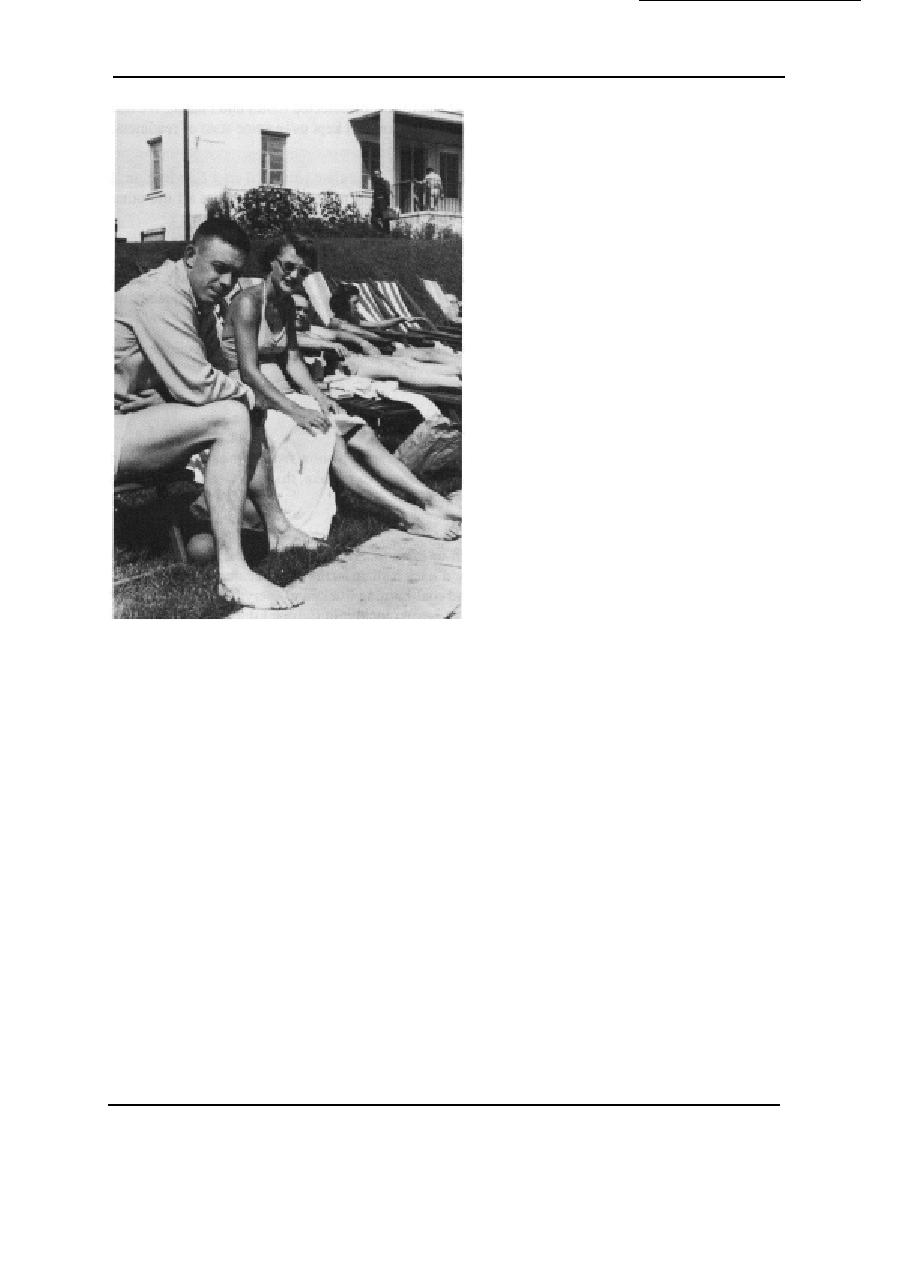
John W. Morris
My a s s o c i a t e in S-4, M r . W i l l a r d
Fritzinger, raised Italian greyhounds and
we got a dog; his name was Carlos. We
called him Charles and had him for 15
years. He grew up with our kids. We had
a housekeeper, a Czechoslovakian
refugee, who took care of the children. I
finally got rid of that Ford and my
captain's bars about the same time. I
ordered a Riley made in England, a nice
automobile. We brought it back to the
States.
We had parties at the Schloss, a three-
story officers' club. A local landowner
had a large estate and this building was
used as our club and transient and
bachelor officers' billets. We had a
women's billet which was very
unsatisfactory, so based on my
experience in Tokyo I decided to put the
men on one floor and the women on
another. There was a lot of hullabaloo
about that. Interestingly, the men began
wearing n e c k t i e s a n d j a c k e t s - i t
improved the appearance, at least, of the
officers. We never had any trouble.
Captain John W. Morris and Gerry Morris
Being S-4 turned out to be a substantive
vacationed in Garmisch, West Germany, while
Morris was assigned to the European Command
assignment in later years. Working for
Engineer School in Murnau.
Armogida was important. He was
replaced by Colonel Dick Jewett,
Richard L. Jewett, who became a gener-
al. Colonel Jewett was a troop commander. He exemplified the military. Armogida was a different
kind of leader-very strong, but he was interested in product, results, and while a strict
disciplinarian, he was not "military."
Q:
The Engineer School at Mumau. That's unusual for an overseas command to have its own
engineer school, isn't it?
A:
Many of the services had schools in Europe in those days. The Engineer School served a very
useful purpose. Keep in mind, the war had not been over all that long, and Korea had started.
There was quite a bit of tension and keeping the troops in Europe combat-ready was of
substantive value. Our subjects included demolitions, bridging, fortifications, et cetera.
As S-4 I had to support certain clandestine activities. I'd get a call in the middle of the night to
do this or that, and I'd have to take care of it. My wife would ask, "Where are you going?" I'd
say, "Well, I can't tell you." The activity trained refugees out of Eastern Europe and dropped
people behind the borders to learn what was going on.
Also, as S-4 I was responsible for the evacuation plan of all the dependents. We stored water,
paper towels, toilet paper, rations-all the things needed if there had to be an evacuation. The
25



 Previous Page
Previous Page
